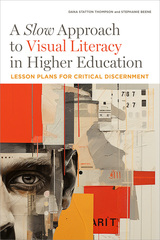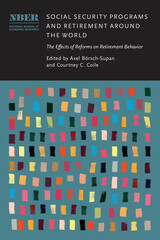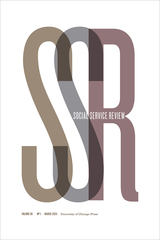
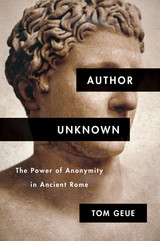
An exploration of the darker corners of ancient Rome to spotlight the strange sorcery of anonymous literature.
From Banksy to Elena Ferrante to the unattributed parchments of ancient Rome, art without clear authorship fascinates and even offends us. Classical scholarship tends to treat this anonymity as a problem or game—a defect to be repaired or mystery to be solved. Author Unknown is the first book to consider anonymity as a site of literary interest rather than a gap that needs filling. We can tether each work to an identity, or we can stand back and ask how the absence of a name affects the meaning and experience of literature.
Tom Geue turns to antiquity to show what the suppression or loss of a name can do for literature. Anonymity supported the illusion of Augustus’s sprawling puppet mastery (Res Gestae), controlled and destroyed the victims of a curse (Ovid’s Ibis), and created out of whole cloth a poetic persona and career (Phaedrus’s Fables). To assume these texts are missing something is to dismiss a source of their power and presume that ancient authors were as hungry for fame as today’s.
In this original look at Latin literature, Geue asks us to work with anonymity rather than against it and to appreciate the continuing power of anonymity in our own time.
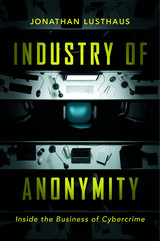
The most extensive account yet of the lives of cybercriminals and the vast international industry they have created, deeply sourced and based on field research in the world’s technology-crime hotspots.
Cybercrime seems invisible. Attacks arrive out of nowhere, their origins hidden by layers of sophisticated technology. Only the victims are clear. But every crime has its perpetrator—specific individuals or groups sitting somewhere behind keyboards and screens. Jonathan Lusthaus lifts the veil on the world of these cybercriminals in the most extensive account yet of the lives they lead, and the vast international industry they have created.
We are long past the age of the lone adolescent hacker tapping away in his parents’ basement. Cybercrime now operates like a business. Its goods and services may be illicit, but it is highly organized, complex, driven by profit, and globally interconnected. Having traveled to cybercrime hotspots around the world to meet with hundreds of law enforcement agents, security gurus, hackers, and criminals, Lusthaus takes us inside this murky underworld and reveals how this business works. He explains the strategies criminals use to build a thriving industry in a low-trust environment characterized by a precarious combination of anonymity and teamwork. Crime takes hold where there is more technical talent than legitimate opportunity, and where authorities turn a blind eye—perhaps for a price. In the fight against cybercrime, understanding what drives people into this industry is as important as advanced security.
Based on seven years of fieldwork from Eastern Europe to West Africa, Industry of Anonymity is a compelling and revealing study of a rational business model which, however much we might wish otherwise, has become a defining feature of the modern world.

Challenging contemporary procedures for establishing attribution, chronology, and authenticity in Chinese art, Winnie Wong explores the means, methods, and stakes of recovering the names of an anonymous community of artists. To examine how Western art history has misconstrued and miscategorized names and identities in Chinese art, she looks to conflicting features of modernity: the European attachment of singular names to individuals and their works, and the Chinese use of socially contingent names that often are not attached to material labor and sometimes operate against it. Wong charts the genealogy of this naming problem by bringing to life the artists of the Qing Empire’s trade with Europeans at the port of Guangzhou, centering on a group of portraitists known by names that were recorded in a pidgin language: Chin Qua, Chit Qua, Spoilum, Lam Qua, and Ting Qua.
Many of these paintings survive today, yet scholars have identified only a handful of the painters’ identities. Pushing against Western norms that have shaped our understanding of authorship, Wong reveals that these artists shared names, created works in multiples, and signed their pieces with different names or none at all. This lavishly illustrated volume explores portraiture across media, including unfired clay, reverse painting on glass, watercolor on paper, oil on canvas, and the daguerreotype, to propose new ways of studying anonymity, copying, and the emergence of author names in the Sino-European visual culture of the long eighteenth century.
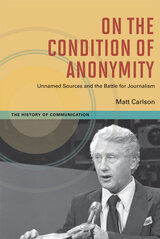
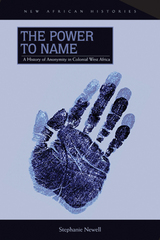
Between the 1880s and the 1940s, the region known as British West Africa became a dynamic zone of literary creativity and textual experimentation. African-owned newspapers offered local writers numerous opportunities to contribute material for publication, and editors repeatedly defined the press as a vehicle to host public debates rather than simply as an organ to disseminate news or editorial ideology. Literate locals responded with great zeal, and in increasing numbers as the twentieth century progressed, they sent in letters, articles, fiction, and poetry for publication in English- and African-language newspapers.
The Power to Name offers a rich cultural history of this phenomenon, examining the wide array of anonymous and pseudonymous writing practices to be found in African-owned newspapers between the 1880s and the 1940s, and the rise of celebrity journalism in the period of anticolonial nationalism. Stephanie Newell has produced an account of colonial West Africa that skillfully shows the ways in which colonized subjects used pseudonyms and anonymity to alter and play with colonial power and constructions of African identity.
READERS
Browse our collection.
PUBLISHERS
See BiblioVault's publisher services.
STUDENT SERVICES
Files for college accessibility offices.
UChicago Accessibility Resources
home | accessibility | search | about | contact us
BiblioVault ® 2001 - 2025
The University of Chicago Press


